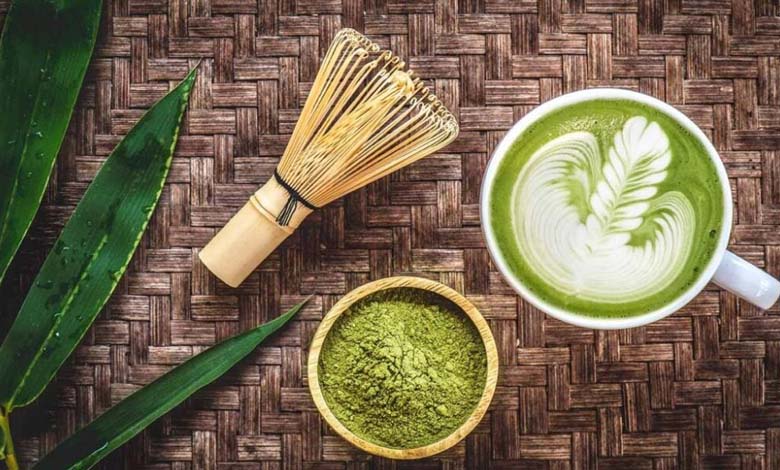Matcha: A Caffeinated Drink That Promotes Relaxation and Sleep

Matcha is a traditional Japanese tea renowned for its numerous health benefits. Despite its caffeine content, matcha supports heart and brain health, reduces stress, and improves sleep quality.
-
Matcha or Coffee… Which is More Beneficial for Health?
-
The Surprising Health Benefits of Matcha Green Tea
This drink is an excellent choice for those seeking the benefits of caffeine without experiencing its side effects, such as anxiety.
Matcha differs from traditional green tea due to its unique cultivation and processing methods. Matcha leaves are grown in the shade, which enhances their nutritional value and increases their concentration of polyphenols, particularly EGCG (epigallocatechin gallate), powerful antioxidants that protect cells and help prevent diseases.
Once harvested, the leaves are dried and ground into a fine powder, allowing consumers to benefit from the entire leaf content, including fiber and beneficial compounds.
Matcha is rich in health-promoting compounds that support various bodily functions, including:
-
Is Smelling “Burnt Toast” an Illusion or a Warning Sign of a Stroke?
-
“Fish Milk”: Nutritional Revolution or Risky Experiment?
- EGCG
Boosts heart health and helps prevent cancer thanks to its antioxidant properties. - Improved brain function
Enhances focus and memory without the negative effects often associated with coffee caffeine. - Heart health
Promotes better vascular function and lowers bad cholesterol levels.
-
Simple Steps to Quit Caffeine without Headaches
-
What is the Impact of Soda Consumption on Pregnant Women?
In addition to caffeine, matcha contains L-theanine, an amino acid that calms the nerves and promotes relaxation without causing drowsiness.
This balance between caffeine and L-theanine makes matcha ideal for reducing stress and enhancing focus, making it a suitable choice for individuals prone to anxiety.
Studies have shown that drinking two cups of matcha daily can help reduce anxiety levels. Furthermore, consuming up to five cups daily may improve sleep quality, despite its caffeine content.












